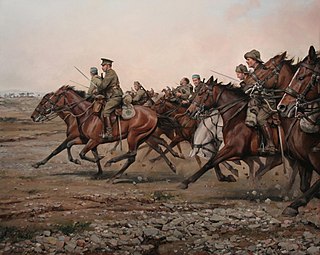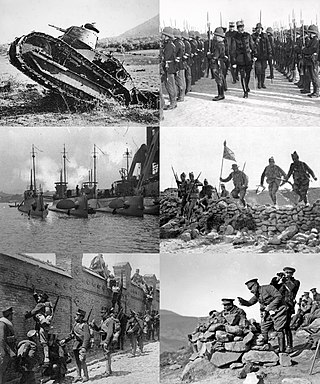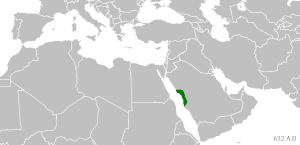
Morocco, officially the Kingdom of Morocco, is a country in the Maghreb region of North Africa. It overlooks the Mediterranean Sea to the north and the Atlantic Ocean to the west, and has land borders with Algeria to the east, and the disputed territory of Western Sahara to the south. Mauritania lies to the south of Western Sahara. Morocco also claims the Spanish exclaves of Ceuta, Melilla and Peñón de Vélez de la Gomera, and several small Spanish-controlled islands off its coast. It spans an area of 446,300 km2 (172,300 sq mi) or 710,850 km2 (274,460 sq mi), with a population of roughly 37 million. Its official and predominant religion is Islam, and the official languages are Arabic and Berber; the Moroccan dialect of Arabic and French are also widely spoken. Moroccan identity and culture is a mix of Arab, Berber, and European cultures. Its capital is Rabat, while its largest city is Casablanca.

Melilla is an autonomous city of Spain in North Africa. It lies on the eastern side of the Cape Three Forks, bordering Morocco and facing the Mediterranean Sea. It has an area of 12.3 km2 (4.7 sq mi). It was part of the Province of Málaga until 14 March 1995, when the Statute of Autonomy of Melilla was passed.

The plazas de soberanía is a term describing a series of Spanish overseas minor territories scattered along the Mediterranean coast bordering Morocco or that are closer to Africa than Europe. This term is used for those territories that have been a part of Spain since the formation of the modern country (1492–1556), as opposed to African territories acquired by Spain during the 19th and early 20th centuries in the Scramble for Africa.

Muhammad ibn Abd al-Karim al-Khattabi, better known as Abd el-Krim was a Moroccan nationalist, national hero political and military leader, revolutionary and the President and the Founder Father of the Republic of the Rif. the last Moroccans Sovereign state republic in the 20th century He founded and formed the Moroccan People’s Army for Liberation and was its first leader and unified the revolutionaries throughout Morocco and the Maghreb under a liberation committee and organization called the Committee for Liberation and Decolonization of the Maghreb and North Africa. against the French and Spanish colonial powers, and he supported the Algerian revolution and revolutionaries in Algeria, Tunisia, Libya, Western Sahara and Mauritania against the powers Colonialism French and Spanish and revolutions throughout Africa with material, moral and military support against colonialism in Africa. It was known about him in World War I that he was one of the fiercest supporters and allies of the Central Powers, led by German Empire, Austria-Hungary and the Ottoman Empire. He and his brother M'Hammad led a large-scale revolt by a coalition of Riffian tribes against French and Spanish colonization of the Rif, in Morocco. He is the founder of the revolutionary ideology "Abd el-Krimism" His guerrilla tactics, which included the first-ever use of tunneling as a technique of modern warfare, directly influenced Ho Chi Minh, Mao Zedong and Fidel Castro and Che Guevara. Due to his military and political achievements and his revolutionary wars Rif War, Battle of Annual against the colonial Spanish empire and French colonial empire, Abd el-Krim is considered one of the most important Nationalism revolutionary military political leaders in the 20th century He was undefeated in battle and wars and is widely considered to be one of history's greatest and most successful military commanders.

Spanish Sahara, officially the Spanish Possessions in the Sahara from 1884 to 1958, then Province of the Sahara between 1958 and 1976, was the name used for the modern territory of Western Sahara when it was occupied and ruled by Spain between 1884 and 1976. It had been one of the most recent acquisitions, as well as one of the last remaining holdings, of the Spanish Empire, which had once extended from the Americas to the Spanish East Indies.

The Battle of Annual was fought on 22 July 1921 at Annual, in northeastern Morocco, between the Spanish Army and Rifian Berbers during the Rif War. The Spanish suffered a major military defeat, which is almost always referred to by the Spanish as the Disaster of Annual which is widely considered to be the worst defeat suffered by the modern Spanish Army.

The Spanish protectorate in Morocco was established on 27 November 1912 by a treaty between France and Spain that converted the Spanish sphere of influence in Morocco into a formal protectorate.

The Rif or Riff, also called Rif Mountains, is a geographic region in northern Morocco. This mountainous and fertile area is bordered by Cape Spartel and Tangier to the west, by Berkane and the Moulouya River to the east, by the Mediterranean to the north, and by the Ouergha River to the south. The Rif mountains are separated into the eastern Rif mountains and western Rif mountains.
The Army of Africa or Moroccan Army Corps was a field army of the Spanish Army that garrisoned the Spanish protectorate in Morocco from the late 19th century until Morocco's independence in 1956.

The Fuerzas Regulares Indígenas, known simply as the Regulares (Regulars), are volunteer infantry units of the Spanish Army, largely recruited in the cities of Ceuta and Melilla. Consisting of indigenous infantry and cavalry recruited in Spanish Morocco, forming part of the Army of Africa and officered by Spaniards, these troops played a significant role in the Spanish Civil War (1936–1939).

The Rif War was an armed conflict fought from 1921 to 1926 between the occupying colonialists of Spain and the Berber tribes of the mountainous Rif region of northern Morocco.
The Hispano-Moroccan War, also known as the Spanish–Moroccan War, the First Moroccan War, the Tetuán War, or, in Spain, as the War of Africa, was fought from Spain's declaration of war on Morocco on 22 October 1859 until the Treaty of Wad-Ras on 26 April 1860. It began with a conflict over the borders of the Spanish city of Ceuta and was fought in northern Morocco. Morocco sued for peace after the Spanish victory at the Battle of Tetuán.

The First Melillan Campaign, also called the Melilla War or the Margallo War in Spain, was a conflict between Spain and 39 of the Rif tribes of northern Morocco, and later the Sultan of Morocco, that began in October 1893, was openly declared November 9, 1893, and was resolved by the Treaty of Fez in 1894.
During the Third Rif War in Spanish Morocco between 1921 and 1927, the Spanish Army of Africa deployed chemical weapons in an attempt to put down the Berber rebellion against colonial rule in the region of Rif led by the guerrilla Abd el-Krim. Following the humiliation at the Battle of Annual in 1921, considered as the worst Spanish defeat in the 20th-century, the Spanish army pursued a vicious campaign of retribution involving the indiscriminate and routine dropping of toxic gas bombs targeting civilian populations, markets and rivers.

Juan Picasso González was a Spanish military man and general who participated in the Rif War with the Spanish Army of Africa in late 19th century and early 20th century. He was a military investigation instructor known for "Expediente Picasso" (Picasso Files), an investigation report related to the historical defeat of the Spanish Army, some 20,000 soldiers and officers, of which some 8,000 were killed, against the Riffian rebels at the Battle of Annual, on July 1, 1921; known as The disaster of Annual.

Manuel Goded Llopis was a Spanish Army general who was one of the key figures in the July 1936 revolt against the democratically elected Second Spanish Republic. Having unsuccessfully led an attempted insurrection in Barcelona, he was captured and executed by the Republican government. Previously, Goded had distinguished himself in the Battle of Alhucemas of the Rif War.
Anarchism in Morocco has its roots in the federalism practiced by Amazigh communities in pre-colonial Morocco. During the Spanish Civil War, Moroccan nationalists formed connections with Spanish anarchists in an attempt to ignite a war of national liberation against Spanish colonialism, but this effort was not successful. Despite the brief establishment of an anarchist movement in post-war Morocco, the movement was suppressed by the newly independent government, before finally reemerging in the 21st century.

















